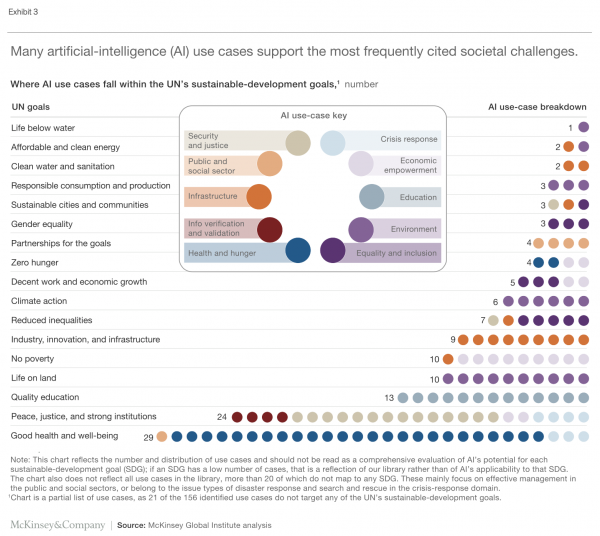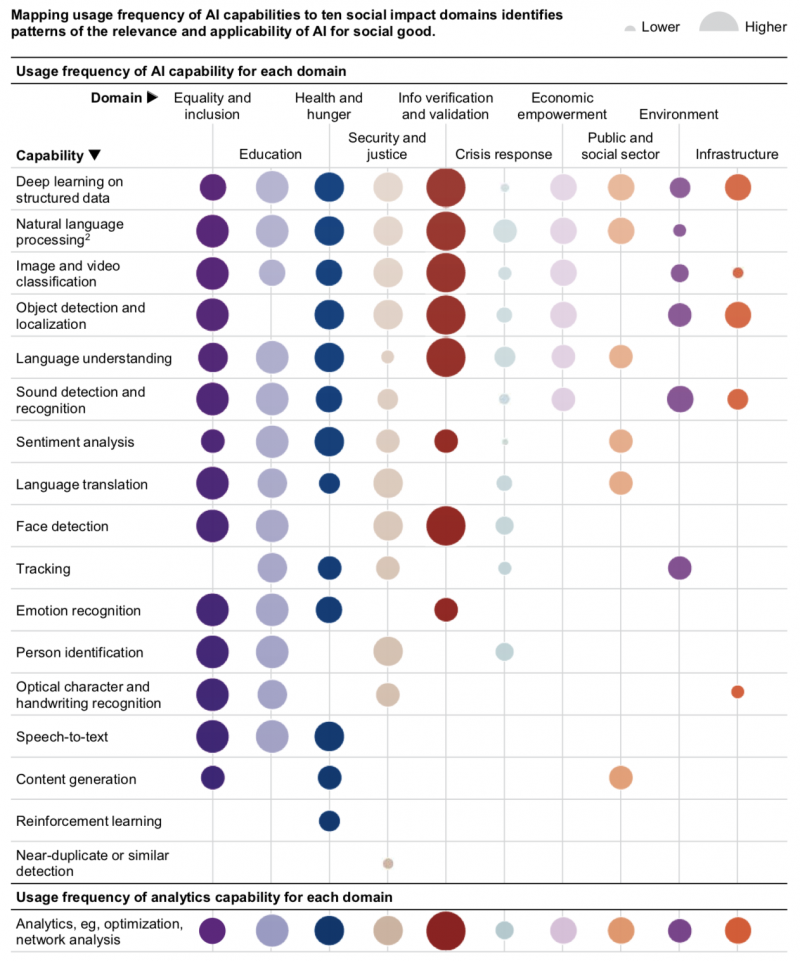Origen: Applying AI for social good | McKinsey
Artificial intelligence (AI) has the potential to help tackle some of the world’s most challenging social problems. To analyze potential applications for social good, we compiled a library of about 160 AI social-impact use cases. They suggest that existing capabilities could contribute to tackling cases across all 17 of the UN’s sustainable-development goals, potentially helping hundreds of millions of people in both advanced and emerging countries.
Real-life examples of AI are already being applied in about one-third of these use cases, albeit in relatively small tests. They range from diagnosing cancer to helping blind people navigate their surroundings, identifying victims of online sexual exploitation, and aiding disaster-relief efforts (such as the flooding that followed Hurricane Harvey in 2017). AI is only part of a much broader tool kit of measures that can be used to tackle societal issues, however. For now, issues such as data accessibility and shortages of AI talent constrain its application for social good.
This article is a condensed version of our discussion paper, Notes from the AI frontier: Applying AI for social good (PDF–3MB). It looks at domains of social good where AI could be applied, and the most pertinent types of AI capabilities, as well as the bottlenecks and risks that must be overcome and mitigated if AI is to scale up and realize its full potential for social impact. The article is divided into five sections:


